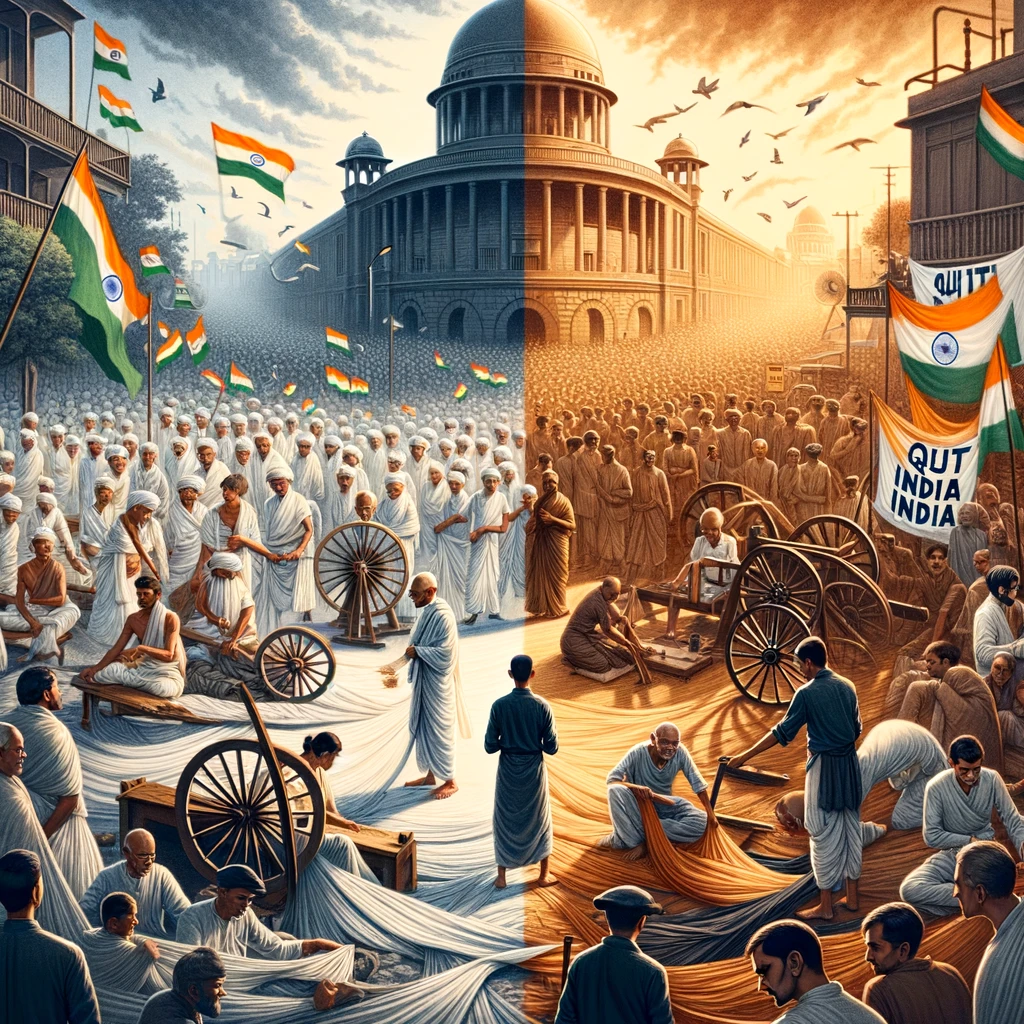Gandhi’s Controversial Leadership in the Indian Freedom Struggle
In the intricate tapestry of India’s struggle for freedom, Mahatma Gandhi emerges as a figure of monumental influence and contentious debate. His leadership, characterized by a steadfast commitment to non-violence and civil disobedience, not only shaped the trajectory of the independence movement but also ignited discussions on the efficacy and ethics of his methods. Critics point to Gandhi’s unilateral decision-making, especially in pivotal movements like the Non-Cooperation Movement, Salt March, and Quit India Movement, as a departure from the collective ethos of Indian culture. Furthermore, his associations with figures like Gokhale and Naoroji, along with the allegations of being a British tool to counteract revolutionary forces, underscore the complexity of his legacy. This essay critically examines these facets of Gandhi’s leadership, acknowledging his contributions while delving into the controversies that continue to provoke reflection and debate.
